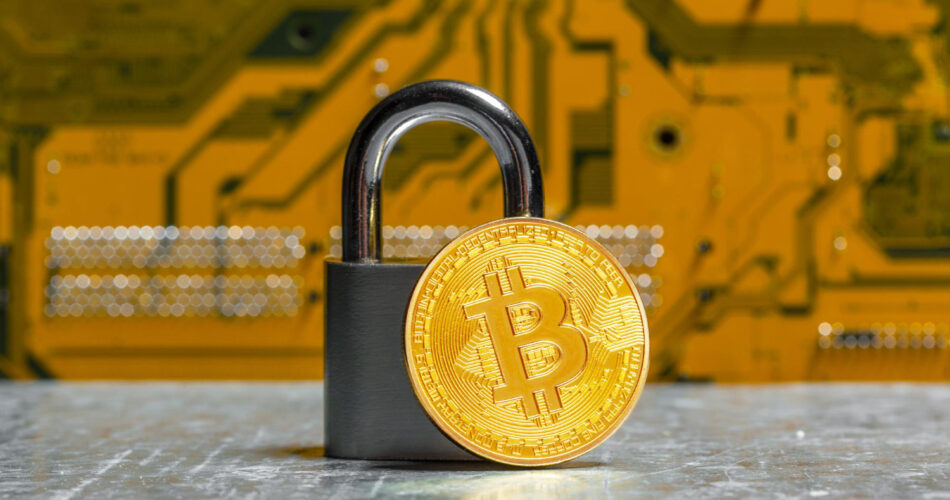In the ever-evolving world of cryptocurrency, one phrase rings true: “Not Your Keys Not Your Coins”. This concept, while simple, is the cornerstone of crypto security and ownership. It emphasizes the importance of private keys in maintaining control over your digital assets. But what does it really mean, and why is it so crucial in the crypto world? Let’s dive in and unlock the mystery.
Understanding Cryptocurrency and Blockchain

To fully grasp the “not your keys not your coins” or “not your keys not your crypto” concept, we first need to understand the basics of cryptocurrency and blockchain technology.
What is Cryptocurrency?
Cryptocurrency is a type of digital or virtual currency that uses cryptography for security. Unlike traditional currencies, cryptocurrencies operate on decentralized platforms.
How Does Blockchain Work?
Blockchain, the technology behind most cryptocurrencies, is a decentralized, distributed ledger that records all transactions across a network of computers. This technology ensures transparency and security in transactions, making it nearly impossible to alter past transactions.
Cryptocurrency Ownership: The Key Concept

The phrase “Not Your Keys Not Your Coins” is a fundamental principle in the world of cryptocurrencies. This principle is all about ownership and control. But what does it mean, and why is it so important?
Understanding the Phrase
At its core, “Not Your Keys Not Your Coins” means that if you don’t control the private keys to your crypto assets, you don’t truly own those assets. Your private keys are what allow you to access and manage your cryptocurrency. Without them, your coins are essentially in someone else’s control.
Why Private Keys Matter
Private keys are a critical aspect of cryptocurrency transactions. They are a complex, cryptographic code that allows you to access your cryptocurrency and authorize transactions. Think of them as the PIN to your bank account; without it, you can’t access your funds. If you don’t have control over your private keys, you’re essentially entrusting your assets to someone else.
The Role of Third Parties
Many people store their cryptocurrencies on exchanges or in wallets provided by third-party services. While this can offer convenience, it also means that these third parties hold the private keys and, therefore, have control over the assets. If these platforms suffer a security breach, your assets are at risk.
Taking Control of Your Assets
The “Not Your Keys Not Your Crypto” principle encourages individuals to take control of their private keys, and therefore, their assets. This can be done by storing cryptocurrencies in a personal wallet where the individual has control over the private keys. By doing this, you ensure that you are the only one who can access and manage your assets.
The Importance of Private Keys

In the realm of cryptocurrencies, private keys hold a position of paramount importance. They are the backbone of security and ownership in the crypto world. But what exactly are private keys, and why are they so crucial?
Understanding Private Keys
Private keys are a form of cryptography that allows a user to access their cryptocurrency. They are essentially a complex, unique code that is paired with a public key to enable cryptocurrency transactions. In simpler terms, a private key is like the password to your digital wallet.
The Role of Private Keys in Transactions
Private keys play a vital role in cryptocurrency transactions. When you send cryptocurrency, you are essentially creating a message, known as a transaction, which is secured with your private key. This transaction is then broadcasted to the network to be included in the blockchain. Without the private key, this transaction cannot be created.
Private Keys and Ownership
Private keys are also the defining factor of ownership in the world of cryptocurrencies. As the saying goes, “Not Your Keys, Not Your Coins”. If you don’t control the private keys to your crypto assets, you don’t truly own those assets. This is because whoever holds the private keys has the ability to access and manage the associated coins.
The Risks of Losing Private Keys
The loss of a private key can be disastrous. If you lose your private key, you lose access to your cryptocurrency. Unlike a bank, there is no way to recover or reset your private key. It’s also important to note that if someone else gets hold of your private key, they gain access to your cryptocurrency.
Risks of Not Owning Your Keys

The phrase “Not Your Keys Not Your Coins” is more than just a catchy slogan; it’s a stark warning about the risks associated with not owning your keys in the world of cryptocurrency. But what are these risks, and why should they concern you?
Dependence on Third Parties
When you don’t own your keys, you’re essentially entrusting your digital assets to a third party, such as a cryptocurrency exchange or a wallet service. These platforms may offer convenience, but they also hold your private keys, which means they have control over your assets. If these platforms suffer a security breach, your assets are at risk. Furthermore, if the third party goes out of business or faces regulatory issues, you could lose access to your assets.
Risk of Hacks and Security Breaches
Cryptocurrency exchanges and wallet services are prime targets for hackers. Over the years, there have been numerous instances of security breaches, with billions of dollars worth of cryptocurrency stolen. When you don’t own your keys, you’re vulnerable to these risks. Even the most secure platforms can fall victim to sophisticated cyber attacks.
Lack of Control and Autonomy
One of the main advantages of cryptocurrencies is the autonomy they offer. They allow you to be your own bank. However, when you don’t own your keys, you give up this autonomy. You’re at the mercy of the third party that holds your keys. If they decide to freeze your account or if their systems go down, you can’t access your assets.
Risk of Loss Due to Mismanagement
Even if a third party has good intentions, they can still make mistakes. Human error, technical glitches, or mismanagement can lead to the loss of your assets. When you own your keys, you’re in control and can take steps to mitigate these risks.
How to Secure Your Keys
Securing your private keys is of paramount importance. It’s the key to ensuring the safety of your digital assets. But how can you secure your keys effectively? Here are some steps you can take:
Use a Hardware Wallet
Hardware wallets are physical devices that securely store your private keys offline. They are designed to protect your keys even if the device is connected to a compromised computer. Examples of hardware wallets include Trezor and Ledger. These wallets are considered one of the safest ways to store your cryptocurrencies.
| Digital Wallet | Key Features | Link |
|---|---|---|
| Trezor Model T | High security, supports 14 cryptocurrencies, open-source software | Trezor Model T |
| Ledger Nano X | Secure cold storage, connects via Bluetooth or USB, supports over 5,500 cryptocurrencies | Ledger Nano X |
| Electrum | Customizable transaction fees, high security, only works for Bitcoin | Electrum |
| Exodus | Built-in exchange, good for beginners, supports cold storage | Exodus |
| MetaMask | A crypto wallet & gateway to blockchain apps, supports token exchange | MetaMask |
| Trust Wallet | Supports a wide range of tokens, built-in exchange, secure and private | Trust Wallet |
| Coinbase Wallet | Supports a wide range of tokens, secure and private, integrates with Coinbase | Coinbase Wallet |
| Tangem Wallet | Card-shaped self-custodial cold wallet, supports 6000+ coins and tokens | Tangem Wallet |
Consider a Paper Wallet
A paper wallet involves printing out your private and public keys and storing them in a secure place. The keys are often printed in the form of QR codes which you can scan for all your transactions. The advantage of a paper wallet is that the keys are not stored digitally anywhere, and are therefore immune from cyber-attacks and hardware failures.
Explore Other Secure Storage Methods
There are other methods to secure your keys. For instance, metal wallets are a type of physical wallet where the user engraves the keys onto a piece of metal. This can protect your keys from physical damage such as fire or flood.
Keep Your Keys Offline
Keeping your keys offline, also known as “cold storage”, can protect them from online threats. This could involve storing them on a hardware wallet, a paper wallet, or even a computer that is not connected to the internet.
Use Secure Networks
When accessing your digital wallet, make sure to do so from a secure network. Public Wi-Fi networks can be risky as they are often not secure, making it easier for hackers to intercept your data.
Regularly Update Your Wallet Software
Regularly updating your wallet software can ensure that you have the latest security enhancements and protections in place. However, make sure to only download updates from trusted sources to avoid malware.
The Role of Cryptocurrency Exchanges
Cryptocurrency exchanges play a pivotal role in the digital currency ecosystem. They provide a platform for buying, selling, and trading cryptocurrencies, making them a central hub for crypto enthusiasts. But what exactly do they do, and what are the implications for your private keys?
Understanding Cryptocurrency Exchanges
Cryptocurrency exchanges are digital marketplaces where traders can exchange one cryptocurrency for another, or for fiat currency. They operate similarly to traditional stock exchanges, but deal in digital currencies. Some of the most popular exchanges include Binance, Coinbase, and Kraken.
| Platform | Pros | Cons |
|---|---|---|
| MEXC | User-friendly interface, wide range of cryptocurrencies, lowest crypto exchange fees, advanced trading features | Platform may be complex for beginners, slow customer service response times |
| Binance | Large number of cryptocurrencies, advanced trading features, high liquidity, user-friendly interface | Reports of delayed customer service responses, potential target for hackers |
| Gate.io | Wide range of cryptocurrencies, advanced trading features, user-friendly interface, educational resources for beginners | Higher trading fees, does not support fiat currency deposits or withdrawals |
| OKX | Large number of cryptocurrencies, advanced trading features, competitive fees, user-friendly interface, educational resources for beginners | Reports of account freezes without prior notice, slow customer service response times |
| BingX | Advanced trading features, high leverage, ability to copy trades from successful traders, user-friendly interface | Smaller selection of cryptocurrencies, less liquidity due to smaller user base |
Exchanges and Your Keys
When you create an account on a cryptocurrency exchange, the exchange generates a wallet for you. This wallet has a pair of keys – a public key, which is like your account number, and a private key, which is like your password. However, on most exchanges, you don’t have access to your private keys. The exchange holds them for you. This means that while you can use the exchange to trade, you don’t truly own the coins in your exchange wallet because you don’t control the private keys.
The Risks of Storing Coins on Exchanges
Storing coins on an exchange is convenient, especially if you trade frequently. However, it comes with risks. Exchanges are prime targets for hackers, and there have been numerous instances of security breaches resulting in the loss of millions of dollars worth of cryptocurrency. Additionally, if the exchange goes out of business or faces regulatory issues, you could lose access to your coins.
The Importance of Withdrawal to a Secure Wallet
Given the risks associated with exchanges, it’s generally recommended to withdraw your coins to a secure wallet where you control the private keys, especially if you’re holding them for the long term. This way, you’re not reliant on the security measures of the exchange, and you have full control over your coins.
Conclusion
The concept of “Not Your Keys Not Your Coins” is a fundamental principle that every crypto owner should understand and follow. By taking control of your private keys, you ensure that you truly own your coins and protect yourself from potential losses. Remember, in the world of crypto, knowledge is power, and security is paramount.
FAQs
What does “Not Your Keys Not Your Coins” mean?
This phrase means that if you don’t control the private keys to your crypto assets, you don’t truly own those assets. Your private keys are what allow you to access and manage your cryptocurrency. Without them, your coins are essentially in someone else’s control.
Why are private keys important in cryptocurrency transactions?
Private keys are a critical aspect of cryptocurrency transactions. They are a complex, cryptographic code that allows you to access your cryptocurrency and authorize transactions. Without the private key, a transaction cannot be created.
What are the risks of not owning your keys?
Not owning your keys can lead to significant risks. For instance, if you store your coins on a cryptocurrency exchange, you’re essentially entrusting your private keys to a third party. If the exchange gets hacked or goes bankrupt, you could lose access to your coins.


